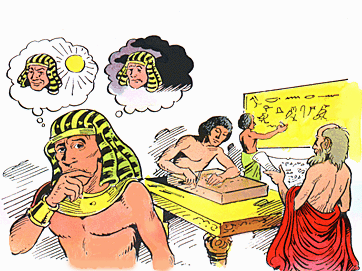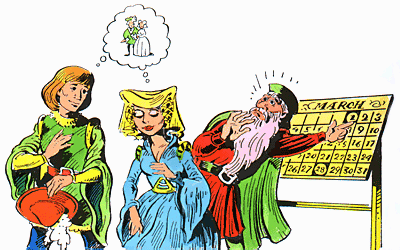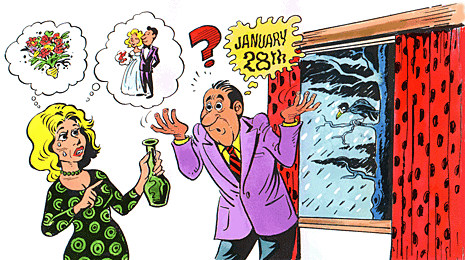Dismal
(bad days)
Dismal came to us as a reference to Egyptian Days
which were considered to be "evil" or "unlucky days".

Etymologically, dismal means "bad day” and it came to us via Anglo-Norman or Old French dis mal, from Latin dies mali, literally "evil days", a term used to denote the two days in each month that according to ancient superstition were supposed to be unlucky.
There were two days of each month which the Romans deemed to be unlucky—usually anniversaries of great disasters—and it was believed to be unwise to begin any venture of importance on any of those days. This belief continued into the Middle Ages, and the days were actually marked on medieval calendars. Such days were said to have been computed by Egyptian astrologers, and were therefore also called Egyptian days or dies Aegyptiaci.
By the fifteenth century dismal was often being used attributively. A "dismal day" was one of the twenty-four that belonged to the dismal.
It was not long before the word was reinterpreted as an adjective, meaning at first "unlucky" but eventually "gloomy" or "miserable". Since the term dismal acquired connotations of "gloom" and "calamity"; it has now progressed to be defined as "depressing to the spirit or outlook; showing a lack or failure of hope", and "very poor or inadequate"; as in a "dismal performance".
The word dismal, by extension, may also include a mental state of depressed mood characterized by feelings of sadness, despair, and discouragement; since people actually feel dejected and depressed about some "dismal situation".
Egyptian Days that were listed on medieval calendars

- January 1 and 25
- February 4 and 26
- March 1 and 28
- April 10 and 20
- May 3 and 25
- June 10 and 16
- July 13 and 22
- August 1 and 30
- September 3 and 21
- October 3 and 22
- November 5 and 28
- December 7 and 22
It was considered unlucky to begin a new enterprise on any of the two days of "misfortune" indicated on the medieval calendar.
The Egyptian Days were thought to have come about either because they were determined by Egyptian astrologers or discovered by them. Some medieval writers connected them with the plagues of ancient Egypt; while others went so far as to associate them with the gloom of "Egyptian darkness".
Dismal has its presence even in our modern days

It can also be a dismal day when a husband forgets to bring his wife flowers on their wedding anniversary.
You may see the dies (DEE uhs) or "day" list of words from here.
